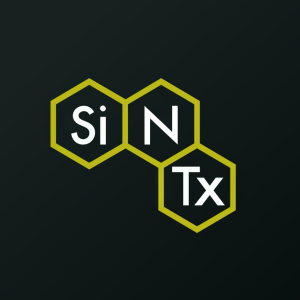NATIONAL INSTITUTES OF HEALTH AWARDS GRANT TO SINTX TECHNOLOGIES FOR DEVELOPMENT OF 3D PRINTED ANTIMICROBIAL TRAUMA DEVICE
SINTX Technologies has received a $275k Phase I grant from the National Institutes of Health (NIH) to develop an antimicrobial trauma device. This 3D printed device will feature a carbon fiber reinforced polyetherketoneketone (PEKK) plate with embedded silicon nitride, enhancing its antibacterial properties. Collaborating with Drexel University and others, SINTX aims to address high infection rates in orthopedic trauma procedures. Successful development may lead to a Phase II award for commercialization. This marks NIH's third grant to SINTX within a year.
- Awarded a $275k Phase I NIH grant for antimicrobial trauma device development.
- Collaboration with reputable institutions like Drexel University and the University of Pennsylvania.
- Potential to address high infection rates in orthopedic trauma procedures with innovative materials.
- Risks associated with product development and market acceptance.
- Uncertainties in scaling production while maintaining quality.
- Potential competition from established products in the market.
Insights
Analyzing...
SALT LAKE CITY, Sept. 29, 2022 (GLOBE NEWSWIRE) -- SINTX Technologies, Inc. (www.sintx.com) (NASDAQ: SINT) (“SINTX” or the “Company”), an original equipment manufacturer (OEM) of advanced ceramic materials for medical and technical applications, announced today a Phase I grant of
SINTX will collaborate with Drexel University, Thomas Jefferson University, and the University of Pennsylvania over the coming twelve months to develop and test this novel infection-resistant trauma plate. The trauma plate will also feature design customization through the 3D printing production method. The composite material forming the device will feature the improved fatigue properties, imaging characteristics, and tailored stiffness of cCF-PEKK with improved biocompatibility and antibacterial properties from silicon nitride.
“Orthopedic trauma procedures can unfortunately have some of the highest infection rates of all surgical specialties. So, the need for antibacterial material characteristics, especially in this area of orthopedic surgery, is tremendous,” said Dr. Ryan Bock, Vice President of Research & Development, SINTX Technologies. “We believe that a 3D printed trauma plate which features silicon nitride embedded into the cCF-PEKK material could potentially be a game changer for ortho trauma. We’re excited about the possibilities and ready to begin this work under our Phase I NIH grant.”
Orthopedic trauma plates are implantable devices used to repair bone fractures. Current materials used in this application, primarily metals, provide little protection against infection, which can occur at rates as high as
For more information, please visit https://sintx.com/.
About SINTX Technologies, Inc.
SINTX Technologies is an advanced ceramics company that develops and commercializes materials, components, and technologies for medical and technical applications. SINTX is a global leader in the research, development, and manufacturing of silicon nitride, and its products have been implanted in humans since 2008. Over the past two years, SINTX has utilized strategic acquisitions and alliances to enter into new markets. The Company has manufacturing facilities in Utah and Maryland.
Forward-Looking Statements for SINTX Technologies, Inc.
This press release contains forward-looking statements within the meaning of the Private Securities Litigation Reform Act of 1995 (PSLRA), including those relating to development of a 3D printed trauma plate that meets or exceeds established mechanical performance requirements and demonstrates strong antibacterial activity, and the ability of SINTX to apply for a Phase II award. Such forward-looking statements are subject to a number of risks and uncertainties. Risks and uncertainties that may cause such differences include, among other things: unforeseen difficulties in designing and developing an antimicrobial trauma device, our products may not prove to be as effective as other products currently being commercialized or to be commercialized in the future by competitors; risks inherent in manufacturing and scaling up to commercial quantities while maintaining quality controls; volatility in the price of SINTX’s common stock; the uncertainties inherent in new product development, including the cost and time required to commercialize such product(s); market acceptance of our products once commercialized; SINTX’s ability to raise funding and other competitive developments. Readers are cautioned not to place undue reliance on the forward-looking statements, which speak only as of the date on which they are made and reflect management’s current estimates, projections, expectations, and beliefs. There can be no assurance that any of the anticipated results will occur on a timely basis or at all due to certain risks and uncertainties, a discussion of which can be found in SINTX’s Risk Factors disclosure in its Annual Report on Form 10-K, filed with the Securities and Exchange Commission (SEC) on March 25, 2022, and in SINTX’s other filings with the SEC. SINTX undertakes no obligation to publicly revise or update the forward-looking statements to reflect events or circumstances that arise after the date of this report.
Business or Media Inquiries for SINTX:
SINTX Technologies
801.839.3502
IR@sintx.com








